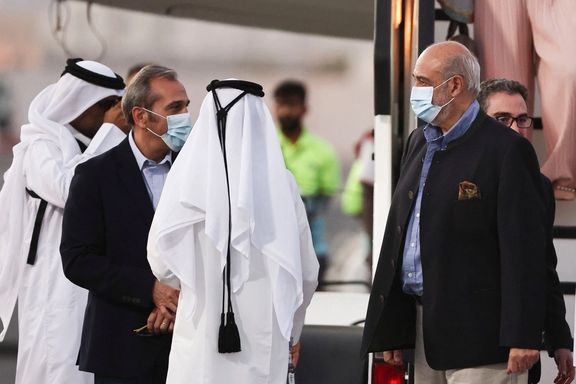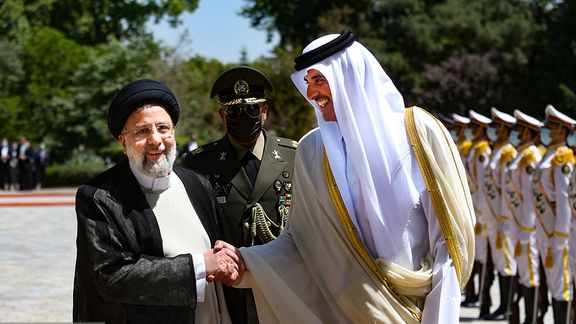Qatar Pursues More US-Iran Talks After Hostage Release Deal

After US hostages were released this week, Qatar is pressing Iran and the United States to engage in more talks over nuclear and other issues, Reuters reported.

After US hostages were released this week, Qatar is pressing Iran and the United States to engage in more talks over nuclear and other issues, Reuters reported.
Quoting three regional sources familiar with discussions that Doha has held with Tehran and Washington, the effort is aimed at reaching “understandings” to iron out some differences. The aim is to address slowing Tehran's uranium enrichment alongside more international monitoring, curbing activities of Iran's proxy militias in the region and halting Iran's drone exports, all in return for some waivers on US sanctions on Iranian oil exports, the three sources said.
Officials in Doha said Qatari officials would hold separate meetings with Iranian and US officials on the sidelines of the UN General Assembly in New York this week. One source briefed on the talks told Reuters those meetings would include discussing enrichment and Iranian drones.
If there is progress, Qatar aims to host indirect talks between Tehran and Washington, the source said. Qatar helped forge the hostage release deal with shuttle diplomacy between Iranian and US negotiators staying in separate hotels in Doha. The Biden administration agreed to authorize the release of $6 billion in Iranian funds blocked in South Korea since 2018.

Various media have been long reporting about a potential limited and unwritten agreement after formal talks to revive the 2015 JCPOA failed last year. Speculations in this regard became more frequent since June when the US authorized the release of $2.7 billion blocked in Iraqi banks. The Biden administration has played down any prospect of a wider deal, because according to the law, it must report to the US Congress about any nuclear agreement with Iran.
Republicans and some Democrats are becoming more critical of the Iranian regime and the administration’s apparent secret dealings with Tehran. The House of Representatives overwhelmingly passed the Mahsa Act September 13, which hardened US sanctions against Iran’s ruler Ali Khamenei and President Ebrahim Raisi.
When the US hostages were released earlier this week, Secretary of State Antony Blinken left the door open to diplomacy on the nuclear file, which he described as "perhaps the number one issue of concern", but said nothing was imminent.
"In this moment, we're not engaged on that, but we'll see in the future if there are opportunities," he said in New York, in his response to a question about whether there could be more indirect talks with Iran soon.
Two Iranian insiders said there would be indirect meetings between Tehran and Washington in New York that could pave the way for talks on a nuclear "understanding". They said Iran had never shut the door to nuclear diplomacy.
Another Iranian insider briefed on discussions so far with Qatar told Reuters: "Considering the upcoming US elections, it is possible to reach an understanding that will involve issuing waivers on banking and oil sectors that would allow Iran to export its oil freely and get its money back via the banking system" - currently barred by existing US sanctions.
This would mean an almost total unravelling of economic sanctions imposed since 2018, while leaving Iran on the nuclear threshold, with more than 100 kilograms of uranium enriched to 60 percent.
The three regional sources said Tehran had already committed to lowering enrichment of uranium to 60% - below the roughly 90% needed for a nuclear weapon - and was ready to resume cooperation with the UN International Atomic Energy Agency (IAEA) which monitors Iran's nuclear work.
However, last week Iran withdrew accreditation to several UN nuclear inspectors, angering the IAEA and Western powers that later issued a statement calling on Tehran to rescind its decision. Iran could be upping the ante precisely because there are behind the scenes talks, to extract maximum concessions.